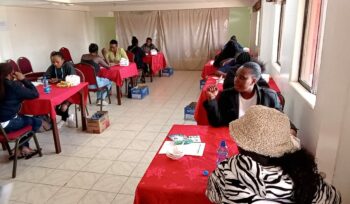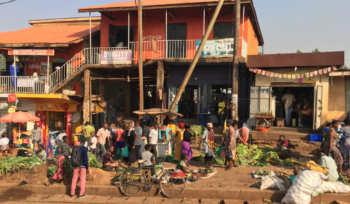- 02/08/2024
- Posted by: ilana.czerwinski
- Categories: Articles, Consumer Goods / FMCG, Non-alcoholic beverages, Online Panels, Product testing

Explore how leveraging concept testing in Africa benefits FMCG manufacturers through this detailed case study.
Context
An international beverage manufacturer aimed to expand into West Africa by launching a successful European and Middle Eastern product—a concentrated still drink. To evaluate market potential and optimise commercialization, including packaging format and pricing, they engaged our Quantitative Research team for a concept test with soft drink consumers in six West African countries (purchase decision makers in Guinea, Cameroon, Liberia, Sierra Leone, Senegal and Mali).
Research Objectives
Our client’s research objectives were the following:
- Purchase intent: How many consumers in each of these markets would be willing to purchase the product?
- Product characteristics: Are the ingredients and product features showcased on the label aligned with consumers’ needs in these markets?
- Barrier to usage: Would the need to dilute the concentrate with water affect purchase intent?
- Product description: Was the term used to describe the product in the label clearly understood by consumers in the markets in scope?
- Packaging Preference: Which of the two packaging options tested for the product would perform best in each market?
- Price Sensitivity: How much would consumers be willing to pay for the product in each of these markets?

Our Solution: Online Concept Testing
We conducted a 10-minute online concept test survey with around 200 respondents in each of the six target markets. We chose the online approach for its efficiency and cost-effectiveness, allowing us to conduct simultaneous testing across all countries. Using our proprietary online panel, SagaPoll, ensured high-quality and consistent data collection. This method provided broad national coverage and a representative sample from all demographics.
Results and Insights
The study revealed the following key insights:
- Packaging Optimization: We identified necessary adjustments for packaging optimisation to maximise market potential before launch.
- Label Terminology: Consumers in Guinea, Liberia, and Sierra Leone found terms to describe the product confusing, which impacted purchase intent.
- Effective Claims: We identified key claims with the potential to enhance purchase intent across all markets.
- Packaging Preference: Our research showed significant variations in preferred packaging options across the different markets, highlighting the need for local customization.
- Consumption Challenge: The need to dilute the drink was a barrier so offering a ready-to-drink option might be better in some countries.
- Pricing Strategy: Optimal price ranges were determined for each market.
In conclusion, concept testing, packaging tests, and claim testing are crucial in FMCG product development and launch strategy to ensure alignment with consumer preferences across diverse African markets.
Contact our Quantitative Research team to discuss how we can support your upcoming FMCG concept testing in Africa .
If you liked this, you might also find interesting our webinar on Product Testing methodologies. You can watch the webinar replay directly here.






